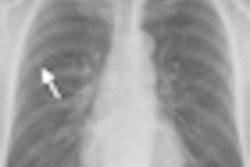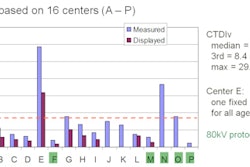
NEW YORK (Reuters Health), Apr 28 - Flexible sigmoidoscopy reduces colorectal cancer incidence and mortality, British researchers reported online April 28 in the Lancet.
Offered once to people ages 55 to 64, the procedure -- including polypectomy for small polyps and colonoscopy referral for high-risk polyps -- lowered the incidence of colorectal cancers by as much as one-third and cancer-specific mortality by up to 43%.
"There has never been trial evidence that removing polyps prevents cancer," said lead author Dr. Wendy S. Atkin, of Imperial College London, at a press conference on Tuesday. "Tomorrow, when this study is published, this will be the first evidence."
For their study, the U.K. Flexible Sigmoidoscopy Trial investigators randomized more than 170,000 men and women who had indicated they would participate in a screening test if offered one. Those with a history of colorectal cancer, adenomas, or inflammatory bowel disease were excluded, as were those who had severe or terminal disease or had undergone colonoscopy recently.
The researchers assigned 57,237 participants to the intervention group. Of these, 71% underwent screening in hospital endoscopy clinics between 1994 and 1999. The median follow-up was about 11 years, during which 2,524 participants were diagnosed with colorectal cancer and more than 20,500 died.
On per-protocol analysis, the rate of distal cancers (rectum and sigmoid colon) per 100,000 person-years was 98 in the control group and 48 in the screened group, respectively (hazard ratio, 0.50). The corresponding rates of colorectal cancer death per 100,000 person years were 44 and 25 (HR, 0.57).
On intention-to-treat analysis, the hazard ratios in the intervention group were larger: 0.64 for distal colorectal cancer and 0.69 for colorectal cancer mortality.
There were no significant differences in proximal cancer rates and all-cause mortality between the two groups.
The number needed to screen was 191 in order to prevent one colorectal cancer diagnosis and 489 in order to prevent one colorectal cancer death (402 when the cause of death was verified by an independent expert).
"The results from our trial show that flexible sigmoidoscopy is a safe and practical test and, when offered only once to people between ages 55 and 64 years, confers a substantial and long-lasting protection from colorectal cancer," the researchers conclude.
Earlier, weaker studies had also suggested a protective effect of endoscopy, but most had been case-controlled or retrospective (see Reuters Health story on April 2, 2010).
"In 2010, the U.K. randomized study must be regarded as the most reliable evidence about the size of the reduction in colorectal cancer for 10 years after endoscopic examination of the left colon," wrote Dr. David F. Ransohoff, of the University of North Carolina at Chapel Hill, in a comment.
"Sigmoidoscopy was not perfectly protective, even in the left colon," Dr. Ransohoff noted. "The good news is that this size of benefit is large for any cancer screening test, certainly compared with mammography for breast cancer or assay of prostate-specific antigen for prostate cancer."
By Frederik Joelving
Lancet 2010.
Last Updated: 2010-04-27 18:30:30 -0400 (Reuters Health)
Related Reading
Long colonoscopy duration doesn't predict quality of screening, April 15, 2010
Providers don't adequately discuss colon cancer screening, April 13, 2010
Hispanics have less access to colon screening, April 12, 2010
Small polyps detected at CTC screening unlikely to be dysplastic or malignant, April 6, 2010
Cancer deaths drop as colonoscopy rates soar, April 2, 2010
Copyright © 2010 Reuters Limited. All rights reserved. Republication or redistribution of Reuters content, including by framing or similar means, is expressly prohibited without the prior written consent of Reuters. Reuters shall not be liable for any errors or delays in the content, or for any actions taken in reliance thereon. Reuters and the Reuters sphere logo are registered trademarks and trademarks of the Reuters group of companies around the world.


















